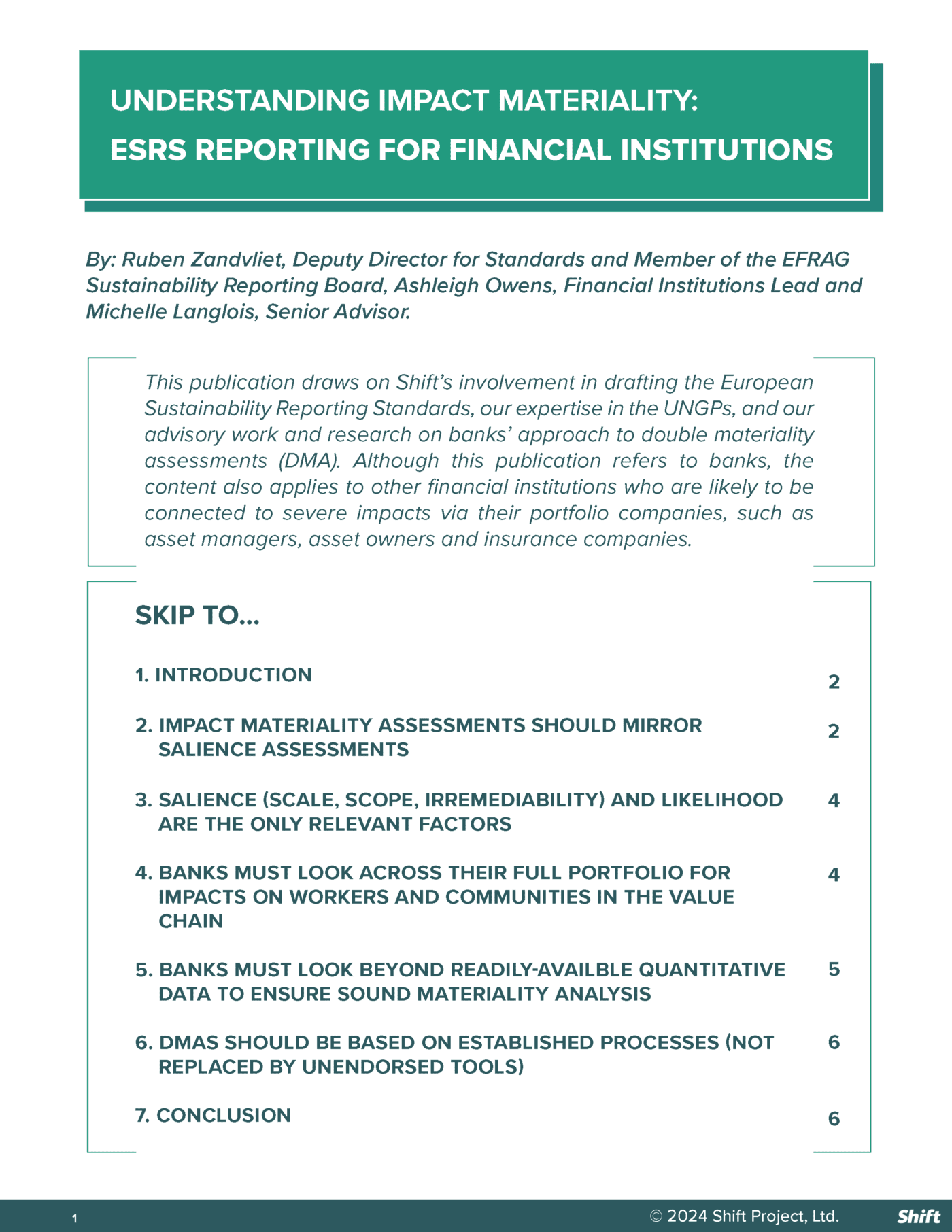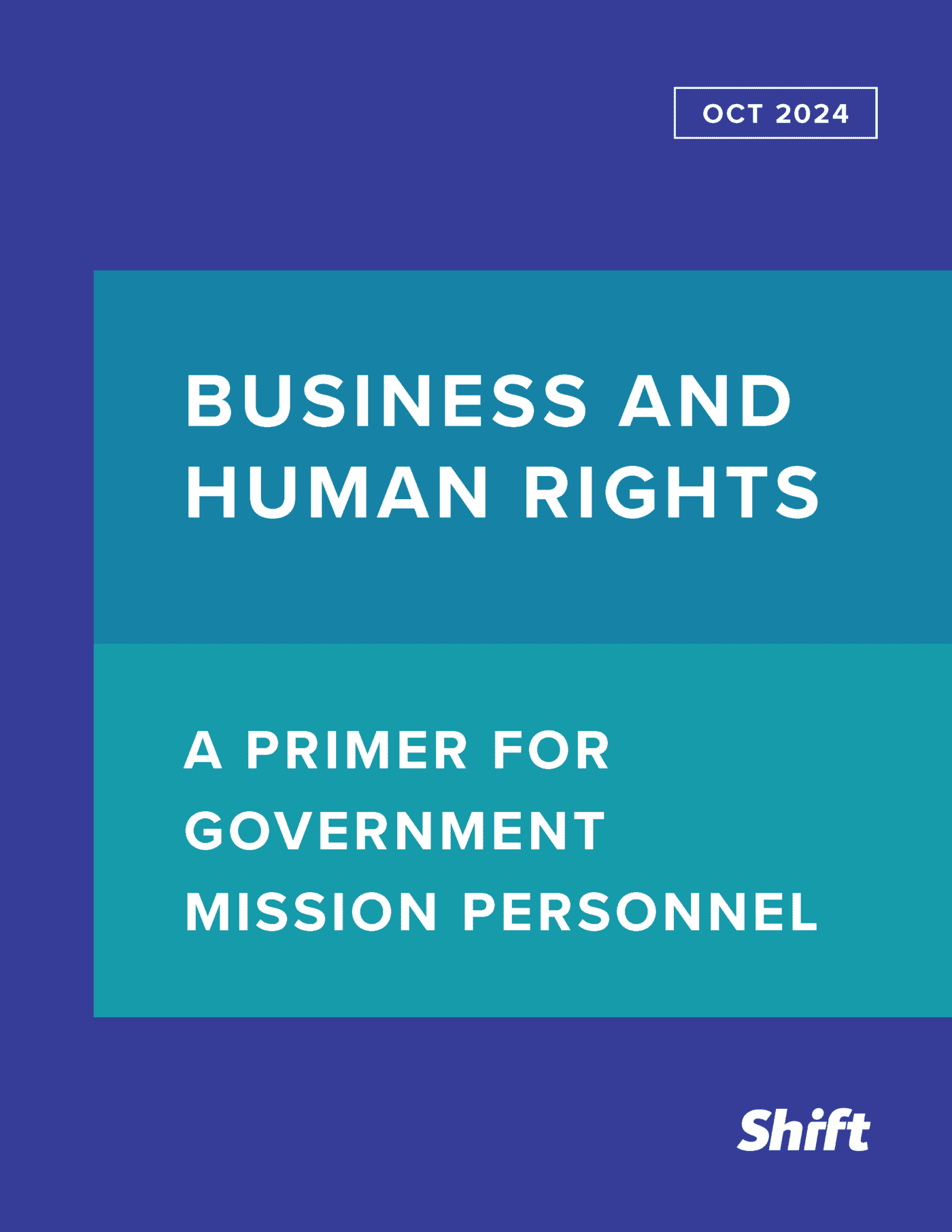This Viewpoint was originally published in CSRWire.
In 2004, I was representing the UK Government in the United Nations Human Rights Commission (predecessor to today’s Human Rights Council) when the subject of business and human rights hit its agenda. The proposition was a set of draft human rights “Norms,” supposedly binding on business.
Companies were furious: this looked like an attempt to foist onto them states’ international human rights obligations, which too many governments continued to fail to meet. Civil society was equally exercised: too long had companies sought to argue that human rights had nothing to do with them, when all the evidence spoke to the contrary.
For many, a treaty seemed the only way forward.
Avoiding a Treaty
That argument helped focus some government minds. The Commission asked Kofi Annan, then UN Secretary-General, to appoint a representative to chart a way forward. Professor John Ruggie was the appointed man. Over six years he ran a careful process of research, consultation and pilot work that led to the UN Guiding Principles on Business and Human Rights. This document set out the baseline expectations of both governments and business for ensuring that companies do not harm people’s fundamental human rights. It generated sufficient consensus among the previously warring factions for governments to endorse them in 2011 without changing a word.
Wind forward 10 years and one has a sense of déjà vu.
Human Rights: A Treaty
Last month, the Human Rights Council adopted a resolution (albeit with only 20 positive votes of a possible 47) that will see the establishment of an intergovernmental process to develop a broad-ranging treaty on business and human rights.
So has nothing changed? Are we back where we started?
Quite the contrary. The current conversation bears little relation to that of 2004. The reality far less.
No business associations or companies in the Geneva debate would today claim that human rights are not relevant for business. To suggest such has become ridiculous. Instead, the number and range of companies introducing human rights policies and due diligence processes, conducting and commissioning impact assessments, scrutinizing their business partners and product lines for human rights concerns is burgeoning.
But these are just symptoms of a new reality.
Today, the UN is not the main attraction when it comes to generating change in business practices with regard to human rights. Nor should it be. The UN was needed to break past stale assumptions and catalyze a step change in thinking. It was smart to do so through an unusual process – outsourced in order to both include but also reach beyond the realm of international human rights law – resulting in the Guiding Principles.
Implementing the UN Business and Human Rights Principles
Today, besides ever more hundreds of companies starting to implement the Guiding Principles, and now numerous governments developing action plans with the same aim, we have law societies discussing how corporate lawyers should be advising their clients on these issues, public and private finance institutions integrating human rights into their financing decisions, investors calling on companies in their portfolio to implement the Guiding Principles – and even divesting on human rights grounds, ever more jurisdictions – now joined by the European Union – requiring companies to report on their human rights performance, regional organizations adding their endorsement of the Guiding Principles, and trade unions and NGOs using the Guiding Principles in their advocacy work, to good effect.
We are even starting to see some regulatory initiatives by governments and parliaments to mandate corporate human rights due diligence as defined by the Guiding Principles.
To underline that much more remains to be done is absolutely right. But to suggest little or nothing has been done is quite wrong: arguably no human rights document of the United Nations has had more broad-ranging and serious uptake in so short a time for decades.
Protecting Human Rights
Perhaps most importantly, companies today aren’t implementing the Guiding Principles because the UN said they should. They are implementing them because their home and host governments, financers, investors, workers and consumers are all saying they should; because their employees’ morale, their public reputation and even their bottom line increasingly depend on them doing so.
So neither companies nor governments should fear that this development in Geneva is a diversion from, or dilution of, what has been achieved in the last 10 years.
John Ruggie and others have laid out the reasons why efforts to develop an all-encompassing business and human rights treaty (instead of targeting specific governance gaps) will struggle to deliver meaningful change. But ultimately, if the proposed treaty process is poorly defined and driven by political machinations not human rights principles, it will simply demonstrate its irrelevance.
And if – as I still hope – Geneva manages to salvage a good process, crafting a targeted agreement that can add real value, this will inevitably drive corporate practices in the same direction as called for by the Guiding Principles.
It will be years before we know which scenario wins out. Either way, putting the Guiding Principles into practice remains the only practical way forward and the imperatives for doing so grow unabated.
A good treaty may add to them. A bad treaty will not reduce them.
 By Caroline Rees
By Caroline Rees



